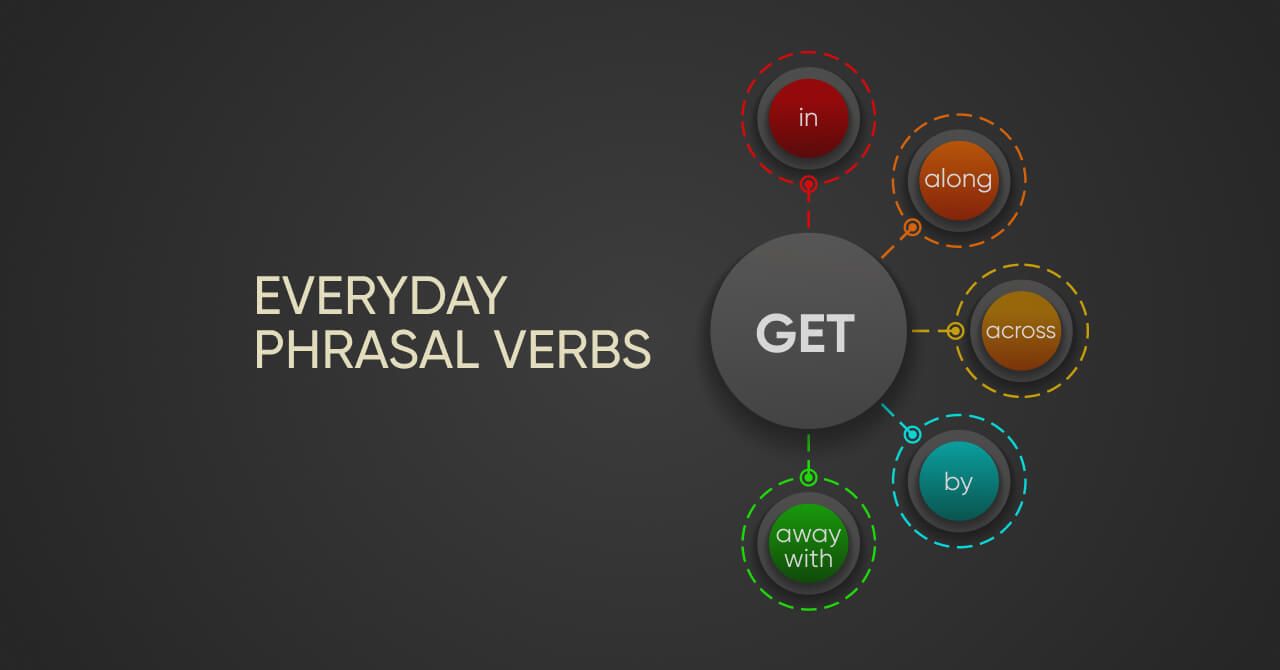
5 Multi-Purpose, Everyday Phrasal Verbs & How to Use Them
Phrasal verbs are important because they will significantly elevate your speaking/conversational skills in informal/conversational English.
Firstly, what are phrasal verbs? Well, their meaning is literally in their name. They are a verb whose meaning is created with a phrase (2+ words). Almost always, they are created with the doing word (verb) + a preposition or a word that describes the verb (adverb). E.g., “look up” means “to search for something in a book or online.” Phrasal verbs are very common and very important, especially in conversation or informal language. These phrases will increase how natural, idiomatic, and expressive your speaking skills are. Unfortunately, it can also be very challenging to learn them, as well as how to implement them in conversation correctly, because they often have different meanings depending on the context. In this article, we will introduce you to five of the absolutely most vital of these phrases in English, as well as how they're used and what they actually mean. So, waste no more time, let's get into it:
Get along
It means “to have a good relationship with someone” or “to be friendly with someone.”
For example:
I get along well with my coworkers.
She doesn’t get along with her boss.
This can also be used to ask about someone’s relationship with another person.
For example:
How do you get along with your roommate?
Do they get along with each other?
Break down
Now, this is one of the more difficult ones I mentioned already. This one has several meanings that are dependent on the situation we use it in. One of the most common meanings is “to stop working or functioning properly.” For example:
My car broke down on the way to work.
The printer broke down again.
Another meaning is “to lose control of one’s emotions.” For example:
He broke down in tears when he heard the news.
She broke down and confessed everything.
A third definition is “to divide a thing into smaller parts or categories.” For example:
Let’s break down the problem into manageable steps.
Can you break down the budget by month?
Look after (a thing or a person)
This one has the meaning “to take care of someone or something” or “to be responsible for a person or an object.”
For example:
Would you be able to look after my dog while I’m away?
She looks after her elderly parents.
You can also use this phrasal verb to mean “to watch over someone or something” or “to protect someone or something.”
For example:
He looked after his sister when she was sick.
Who will look after your house when you’re gone?
Give up (a thing, action, idea, or habit)
This phrase has the meaning “stop doing an action/behavior” or “quit something.”
For example:
He gave up smoking last year.
She gave up her dream of becoming a singer.
It can also be used with the meaning “to surrender something” or “to admit defeat.”
For example:
They gave up their weapons and surrendered.
Don’t give up hope.
Take over (something)
This phrasal verb means “to assume control or responsibility of something” or “to replace someone or something.” For example:
He took over the company after his father retired.
She took over the role of the lead actress.
You can also use this phrasal verb to mean “to invade or occupy something” or “to spread over something.” For example:
The enemy took over the city.
The weeds took over the garden.
Phrasal verbs are important because they will significantly elevate your speaking/conversational skills in informal/conversational English. These phrases are also essential in talking with native-level English speakers, as native speakers use these phrases almost every second word!
However, they are also very challenging to learn and implement, as they more often than not have more than just one meaning, as well as different grammatical structures. Therefore, you must practice them in a situational context and learn them as whole units of meaning rather than as separate words. In doing so, you will be working towards learning this esoteric, mysterious, and difficult sect of the English language whilst simultaneously increasing your skills 10-fold!
Hi there! My name's Declan; I'm a TEFL/TESOL/CELTA certified English teacher with a diploma in English language and literature teaching and over 8 years of international experience; see you soon!

